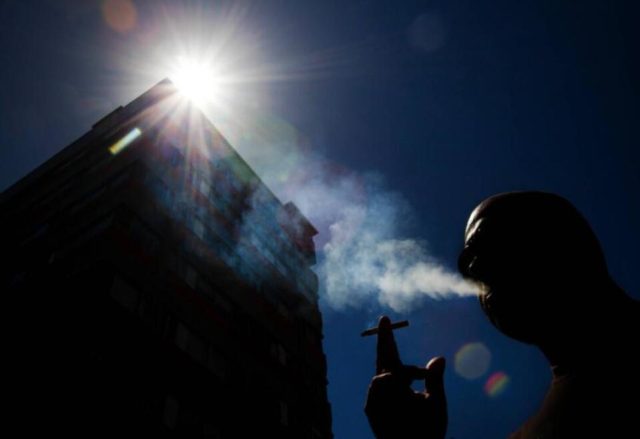Cigarette company mystified by NDZ’s argument.
THE GOVERNMENT’S claim that smokers cannot challenge South Africa’s four-month-old tobacco sales ban because it is primarily aimed at the sellers of tobacco products is spurious, British American Tobacco SA (Batsa) told the Western Cape High Court on Wednesday.
In her submission in the legal battle with Batsa, Cooperative Governance Minister Nkosazana Dlamini Zuma argued that the ban was passed as a restriction on trade and hence the rights of sellers, and therefore any infringement on the rights of smokers to privacy, dignity and autonomy was auxiliary and could not be raised in court.
She argued that the case rested only on whether the constitutional right to choose a trade, as enshrined in section 22 of the Constitution, had been violated in respect of tobacco companies.
In response, Batsa lawyer advocate Alfred Cockerill said this was an “extraordinary argument because the whole purpose of the prohibition is to stop smoking”.
“We are mystified by that argument,” he said. “Our learned friends are desperate to say this is not a case about the rights of consumers but about the rights of the seller.”
Cockerill then pointed to the government’s oft-voiced explanation that the ban sought to prevent smokers from consuming tobacco and then contracting Covid-19 so severely that they would place a burden on the country’s already strained health care system.
“Far from being auxiliary, that is the whole purpose of the prohibition,” he said.
Cockerill also took issue with the minister’s argument that the ban did not violate the constitutional rights of tobacco growers because they were not prevented from plying their trade and were at worst confronted with a temporary cash flow problem because the prohibition had lowered demand for their product.
“The minister is, from the lofty heights of her desk in Pretoria, saying it is just a cash flow problem,” he said.
This was patently not true or helpful, Cockerill continued, because the end result of farmers being unable to sell their tobacco was to go out of business. Moreover, the minister had given no indication of how long the ban, which began on March 27, would remain in place.
The case is being heard over two days. Batsa’s legal challenge follows an unsuccessful high court bid by the Fair-trade Independent Tobacco Association to have the ban overturned.
Fita has now turned to the Supreme Court of Appeal. It attacked the ban in terms of administrative law whereas Batsa also argues that it is unconstitutional.
Cockerill told the court the submissions from experts relied on by Dlamini Zuma estimated that 10 to 15 percent of South Africa’s roughly eight million smokers would quit as a result of the ban because it forces them otherwise to pay exorbitant prices on the black market.
“In constitutional terms that is a perverse justification because in order to achieve the outcome she wants to achieve she relies on illicit activity,” he said.
Experts cited by the minister say that if all the country’s smokers quit, this would potentially free up 4 000 hospital beds.
However, if the government realistically expects only one million smokers to quit, this would free up 500 hospital beds over the duration of the Covid-19 pandemic.
Cockerill said mathematically this meant that at any given time the health services would have an additional 16.4 extra beds available on average.
At this point, Judge Hailey Slingers asked if this did not speak to the supreme constitutional right to life given that there would be more hospital beds available to severely ill Covid-19 patients.
Cockerill countered that the prohibition would only draw legitimacy from the right to life if the minister were able to show that “the system would cope in circumstances where it would not otherwise cope”.
He said section 36 of the Constitution also demanded that Dlamini Zuma prove that the harm created by the ban was outweighed by the benefit.
The harm included, he submitted, the loss of R38 million a day to the fiscus as a result of lost excise duties.
“I do invite my learned friends in their arguments to indicate how it can be reasonable for the minister to deprive the fiscus of R38 million.”
The money could go a long way towards building field hospitals and buying ventilators, he added.
The case is being heard by a full bench of the court. Cockerill was due to raise arguments on points of administrative law during the afternoon. He had to overcome reservations from the judges on allowing these given Fita’s appeal bid.
Batsa contends that the North Gauteng High Court judgment against Fita was flawed.
– African News Agency (ANA)








